Erica Verrillo's Blog, page 94
April 18, 2014
Valuable Tips for Pitching to an Agent or Editor
 "Hi! I'm your new client!" I believe in conferences. No amount of texting, tweeting, or querying can substitute for a handshake and a smile.
"Hi! I'm your new client!" I believe in conferences. No amount of texting, tweeting, or querying can substitute for a handshake and a smile. The best thing you can do for your career as a writer is go to a conference. Conferences not only give writers a chance to talk to agents and editors, they allow people who are otherwise somewhat isolated to make connections.
And making connections is what this business is all about.
(See Shmooze or You Lose for how to find conferences in your area.)
___________________
7 Tips for Pitching to an Agent or Editor at a Conference
By Peggy Eddleman, Writer's Digest, January 18, 2014
I'll admit: I was scared to death to live-pitch my book the first time, and I almost didn't. I figured I was better with words on a page, so I'd just query the agents I met at conferences. I am a huge proponent of pitching your book in person to an agent, though, because it's incredibly beneficial.
Here are seven tips to keep in mind:
Tip #1: If you can get a pitch session with an agent/editor, do it!
Agents get tons of queries every single day, and a good 90% of them come from people who haven't worked very hard to perfect their craft. Agents know that if you go to conferences, you're likely in the 10% who have. If you go to a conference and pitch, you're likely a top 10% writer who has a book close to being worthy of representation. It also gives both of you a chance to meet each other, and that's invaluable.
Tip #2: If you don't register in time to schedule a pitch session, get on a waiting list.
Pitch sessions fill up quickly. People get nervous, though, or don't get their book ready in time, so they cancel often. They shouldn't, but they do, and this is good for anyone who is on the waiting list.
Tip #3: Figure out what you want to cover during your pitch session.
Don't memorize a script, but do memorize the points you want to cover. Then you can talk like a normal person about it. And definitely practice talking like a normal person about it to everyone who will listen. The more comfortable you feel when talking about your book, the better your pitch session will go.
Tip #4: Go with other questions in mind.
I speed-talked my way through my first pitch session, because when I'm nervous I don't ramble - I leave things out. So my pitch was done in less than 30 seconds. After asking me a few questions, the agent requested my full. Then she said, "Do you have any questions for me?" I hadn't thought about questions for her! I sat there, feeling awkward, said, "Um.... Nope?" then shook her hand and left, with seven minutes of our meeting unused.
Don't do what I did! Use that time to ask about their agenting style. Ask about the industry. Ask about the process. Ask about craft. Ask questions about your plot. Ask about anything writing related. Chat. See how your personalities mesh. Just don't leave seven minutes early. You paid for that time- use it .
Read the rest of these valuable tips here.
Published on April 18, 2014 07:27
April 13, 2014
2 New Literary Agents Seeking Clients
I am a fan of new agents. They work hard, and they are passionate about their work. They are also passionate about their authors, and will go the extra mile for them.
As always, read the websites of their agencies carefully. Check to see what they have represented. And google their names to see if they pop up on AbsoluteWrite or any of the other forums writers frequent.
________________________
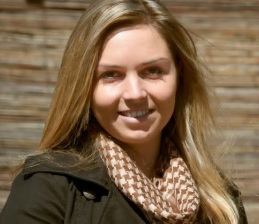 Taylor Haggerty of Waxman Leavell Literary Agency
Taylor Haggerty of Waxman Leavell Literary Agency
About Taylor: Taylor is a graduate of the University of California, Santa Barbara, and received a master’s degree from Emerson College’s Publishing and Writing program. Prior to joining Waxman Leavell in 2013, she worked at the Gersh Agency.
What she is seeking: "I am drawn to novels with a compelling voice and grounded, relatable characters that pull me into their world from the start. My favorite books have strong emotional elements that stay with me long after I finish reading. My current interests include young adult fiction, historical fiction, and historical romance. I do not represent screenplays."
How to contact her: To submit a project, please send a query letter only via email to: taylorsubmit@waxmanleavell.com Do not send attachments. For fiction you may include 5-10 pages of your manuscript in the body of your email.
_________________________
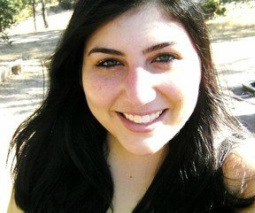 Jennifer Azantian of Jennifer Azantian Literary Agency
Jennifer Azantian of Jennifer Azantian Literary Agency
About Jennifer: Jennifer founded the Jennifer Azantian Literary Agency on February 1, 2014. Before starting her agency, she worked at the Sandra Dijkstra Literary Agency. She was the assistant for Elise Capron and Sandy Dijkstra as well as the office and submissions manager for the agency. After her time at Sandra Dijkstra Literary Agency, she worked with the Paul Levine Literary Agency for several months, and it is under his mentorship that she started her own agency.
What she is seeking: Fantasy, science-fiction, and horror that focuses on characters that feel real, the kind whose stories she can get invested in regardless of extravagance in plot or setting. She is fascinated by the basic human truths that emerge at the heart of all the greatest fantasies. These are the kind of projects that she advocates. She is actively acquiring only science fiction and fantasy (including all of their subgenres) as well as smart, psychological horror for middle grade, young adult, new adult, and adult readers.
How to contact her: Send a query letter, 1-2 page synopsis and the first 10-15 pages of your manuscript in the body of an email to: queries@azantianlitagency.com
NO ATTACHMENTS PLEASE!
As always, read the websites of their agencies carefully. Check to see what they have represented. And google their names to see if they pop up on AbsoluteWrite or any of the other forums writers frequent.
________________________
 Taylor Haggerty of Waxman Leavell Literary Agency
Taylor Haggerty of Waxman Leavell Literary AgencyAbout Taylor: Taylor is a graduate of the University of California, Santa Barbara, and received a master’s degree from Emerson College’s Publishing and Writing program. Prior to joining Waxman Leavell in 2013, she worked at the Gersh Agency.
What she is seeking: "I am drawn to novels with a compelling voice and grounded, relatable characters that pull me into their world from the start. My favorite books have strong emotional elements that stay with me long after I finish reading. My current interests include young adult fiction, historical fiction, and historical romance. I do not represent screenplays."
How to contact her: To submit a project, please send a query letter only via email to: taylorsubmit@waxmanleavell.com Do not send attachments. For fiction you may include 5-10 pages of your manuscript in the body of your email.
_________________________
 Jennifer Azantian of Jennifer Azantian Literary Agency
Jennifer Azantian of Jennifer Azantian Literary AgencyAbout Jennifer: Jennifer founded the Jennifer Azantian Literary Agency on February 1, 2014. Before starting her agency, she worked at the Sandra Dijkstra Literary Agency. She was the assistant for Elise Capron and Sandy Dijkstra as well as the office and submissions manager for the agency. After her time at Sandra Dijkstra Literary Agency, she worked with the Paul Levine Literary Agency for several months, and it is under his mentorship that she started her own agency.
What she is seeking: Fantasy, science-fiction, and horror that focuses on characters that feel real, the kind whose stories she can get invested in regardless of extravagance in plot or setting. She is fascinated by the basic human truths that emerge at the heart of all the greatest fantasies. These are the kind of projects that she advocates. She is actively acquiring only science fiction and fantasy (including all of their subgenres) as well as smart, psychological horror for middle grade, young adult, new adult, and adult readers.
How to contact her: Send a query letter, 1-2 page synopsis and the first 10-15 pages of your manuscript in the body of an email to: queries@azantianlitagency.com
NO ATTACHMENTS PLEASE!
Published on April 13, 2014 07:46
April 12, 2014
Valuable Tips for Nonfiction (and Fiction) Submissions
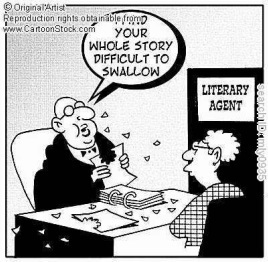 Chuck Sambuchino's blog, Writers in the Storm, is filled with great information on what literary agents do (and do not) like. Here, literary agents talk about what they want to see in a good nonfiction proposal.
Chuck Sambuchino's blog, Writers in the Storm, is filled with great information on what literary agents do (and do not) like. Here, literary agents talk about what they want to see in a good nonfiction proposal. Going through their comments, I found these tips were just as appropriate for fiction writers. Fiction writers also have to develop a marketing plan, do a comparative title analysis, and establish a platform. Read these tips before you send your next query.
_____________________
Chuck Sambuchino, Writers in the Storm
Nonfiction Submission Tips — Agents Speak
Getting a nonfiction book published is a completely different beast than querying for a novel. It involves things like a marketing plan, comparative title analysis, book proposals, professional credentials, and more.
To help with this complicated submission process, I’ve compiled great advice for nonfiction writers from established literary agents who are on the front lines evaluating and selling these books every day.
Here is a roundup of what these smart agents had to say about nonfiction queries, book proposals, the importance of marketing & platform, trends, and much more.
• from Kristina Holmes of The Holmes Agency:
“When I receive a nonfiction query, I’m hoping to discover that you: 1) have a deep mastery and understanding of your topic, 2) have a long-burning passion for what you are sharing, 3) have clearly and concisely expressed your book concept, and 4) have developed an authentic and original writing style. I also hope to see that, whatever you’re doing in your career—whether you’re a writer by profession, or you work in another profession, of which this book is an extension and an expression—you’re doing it out of a deep-rooted vision and inspiration. Practically speaking, I appreciate queries that are no longer than 3 to 4 paragraphs and highlight your professional training and platform.”
• from Kimberley Cameron of Kimberley Cameron & Associates:
“It’s more and more important for authors to have a public platform. All authors should seriously consider building a great website and inviting social media to know who they are through Twitter, Facebook, etc. The publishers are all looking for this.”
The three most common problems Laurie Abkemeier of DeFiore and Company sees in a nonfiction book proposal:
“First, not having a good grasp of the competition. An author needs to know the category inside and out and be able to explain how his book fits in. I always get a sinking feeling in my stomach when I find similar books that the author didn’t know about.
Second, dull chapter summaries. Often the sample material is great, but the summaries are boring or vague. It’s so important that chapter summaries be compelling and convey the energy and depth of unique information that will be in the book. They have to make an editor want to read more.
Third, a marketing section that simply says the book ‘will appeal to everyone!’ That’s never true, and it doesn’t help publishers figure out how to position and sell your book. An author needs to understand who her audience is and how to reach them.”
• Russell Galen of Scovil Galen Ghosh Literary Agency:
“Here are two turnoffs I encounter in book proposals:
1. Lack of a story arc. Many failed nonfiction proposals are mere surveys of a subject. The books that sell have strong characters who are engaged in some project that eventually is resolved. Don’t do a book about slime mold. Do a book about the Slime Mold Guy who solved the mystery of slime mold.
2. Extrapolation. Many proposals say, in effect, ‘I don’t know all that much about this subject but give me a six-figure contract and I will go and find out everything there is to know.’ I understand the problem writers face: How are they supposed to master a subject until after they’ve done the travels, interviews, and research? Nevertheless, unless you are already an established writer, you can’t simply promise to master your subject. Book contracts go to those who have already mastered a subject. If you haven’t mastered your subject but you really think you deserve a book contract, try to get a magazine assignment so that you can do at least some of the necessary research, funded by the magazine.”
Read more here.
Published on April 12, 2014 09:03
April 10, 2014
21 UK Children's Book Publishers Accepting Manuscripts Directly from Writers
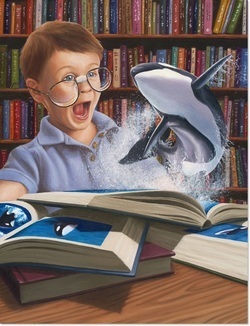 Once upon a time, children's book publishers in the US accepted manuscripts directly from writers.
Once upon a time, children's book publishers in the US accepted manuscripts directly from writers.Now, most US publishers require agents. Children's book publishers in the UK, however, seem to be carrying on the tradition. Most of these are small, specialty publishers, but some are big names in the industry.
As always, make sure you examine their lists to see if your work would be a good fit, and read all of their submission requirements carefully.
(Go here for the Top 5 Resources for Children's Book Writers)
______________________
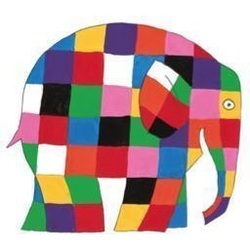 Andersen Press
Andersen PressAndersen Press specializes in children's books. They publish picture books, approximately 500 words (maximum 1000), juvenile fiction 3-5000 words and older fiction up to 75,000 words.
Submissions: Please send all submissions on paper, by regular post, along with a stamped, addressed envelope. They do not accept International Reply Coupons. Click here for details.
_____________________
 Buster Books
Buster BooksBuster Books is the children’s imprint of independent publisher Michael O’Mara Books.
Submissions: Submissions of fiction and non-fiction ideas are welcome from authors, compilers and illustrators. They do not accept picture book or poetry submissions. Synopses and sample text are preferred. Please do not send original text, illustrations or artwork in case of loss or damage. Submissions by email or post. Click here for details.
_____________________
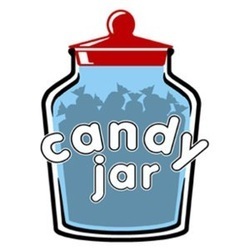 Candy Jar
Candy JarEstablished in 2010 by Shaun Russell and Justin Chaloner, Candy Jar Books publishes both children's and adult titles. Marston Book Services Ltd, one of the leading independent distributors in the UK, is responsible for distributing their titles.
Submissions: They are currently only accepting non-fiction ideas with a strong market appeal. Click here for details
_______________________
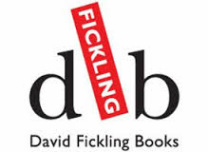 David Fickling
David FicklingFor nearly twelve years DFB was run as an imprint – first as part of Scholastic, then of Random House. Now they are an independent business, DFB Storyhouse. They publish 12-20 titles a year.
Submissions: Send the first 3 chapters of your writing (or just 3 samples of your artwork) attached to your cover email as a PDF document or by regular post. Click here for details.
______________________
 Floris Books
Floris Books Floris Books is an independent publishing company based in Edinburgh, Scotland. They publish books in two main areas: non-fiction for adults, and books for children. Within their non-fiction list, they focus on books that cover all aspects of holistic and alternative living. Submissions: Scottish themed books only for ages 2-15. Printed submissions by regular post only (no emails). Click here for details.
____________________
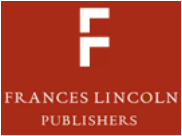 Frances Lincoln
Frances LincolnFrances Lincoln is part of Quarto’s UK publishing unit, the Aurum Publishing Group. It publishes over 100 new books a year for both adults and children. Frances Lincoln Children’s Books publishes picture books, multicultural books, picture books and information books. Submissions: Proposals must be sent by regular post. Click here for details.
______________________
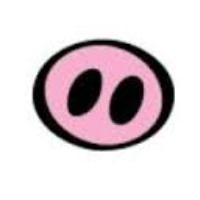 Hogs Back Books
Hogs Back Books Hogs Back is a small publishing house with a short list. They publish picture books and YA novels.
Submissions: For children’s books aged 0-10 years, send a complete manuscript along with a cover letter or email. For young adult novels, include a synopsis and the first three chapters of your manuscript. Click here for details.
_______________________
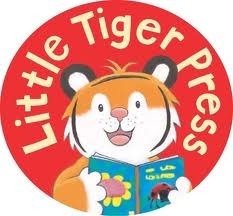 Little Tiger
Little TigerLittle Tiger is a small publisher with four imprints. Little Tiger Press has been publishing children’s books for over 25 years.
Submissions: Manuscripts need to sent by regular mail with a detailed synopsis and include the first three chapters, plus a cover letter with any relevant information about yourself. Send hard copy of your manuscript, in double line spacing in a plain font on white paper. No submissions by email or on disk. Click here for details.
______________________
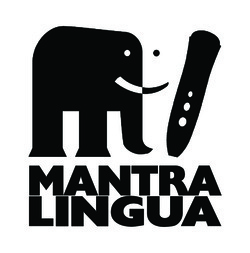 Mantra Lingua
Mantra LinguaThis publisher specializes in bilingual books designed for teachers. No poetry - it is very hard to translate. Keep the word count to about 800 for children up to 7 years, and not over 1400 words for readers up to 12 years. They also need translators for Bengali/Sylhethi, Danish, Dutch, Greek, Hindi, Korean, Latvian, Lithuanian, Malayalam and Panjabi. They are always looking for good translators in all languages. Worldwide distribution.
Submissions: Submissions should be sent via email. Click here for details.
______________________
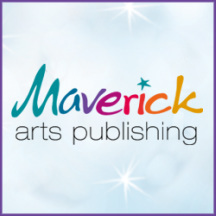 Maverick
MaverickMaverick Arts is a picture book publisher in both print and Nook formats. They accept poetry or prose. Preferred style: "quirky." (Their website is suitably whimsical.)
Submissions: Maximum word count – 800 words, but under 600 is preferable - submitted either as a PDF or in a Word document. Postal submissions accepted. Double line spacing, legible font, text running from one page to another (i.e. not one sentence/stanza per page). Click here for details.
_____________________
 Mogzilla
MogzillaMogzilla and Caboodle books are two independent publishing companies that share a commitment to creating brilliant books for young readers. They've created a new imprint, Mogboodle, for authors and poets. Submissions: No submissions for the under 6 age group. Email them at info@mogzilla.co.uk and provide details of your proposal and they will send you the submissions address. Click here for details.
______________________
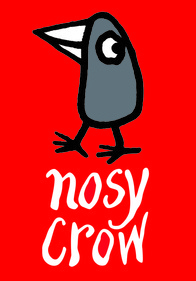 Nosy Crow
Nosy CrowNosy Crow is a small, independent company established in 2011. They publish commercial fiction and non-fiction books for children aged from 0 to 14 by well-known authors and illustrators and by new talent. "We’re looking for “parent-friendly books”, and we don’t publish books with explicit sex, drug use or serious violence, so no edgy YA or edgy cross-over. And whatever New Adult is, we don’t do it." Submissions: They prefer email submissions, though regular postal submissions are also accepted. For novelty/picture books please email the full text. For longer works, you should submit a short synopsis plus the first chapter (double-spaced). You should also send a cover letter containing all relevant information about you and your work. Click here for details.
______________________
 O'brien Press Ltd.
O'brien Press Ltd. O'brien Press is an Irish press publishing children's fiction, children's non-fiction and adult non-fiction. They do not publish poetry, academic works or adult fiction.
Submissions: For works of 1000 words or less, submit your entire manuscript. For anything over 1000 words, send a synopsis and 2 or 3 sample chapters. Regular post only. (No email submissions) Click here for details.
_______________________
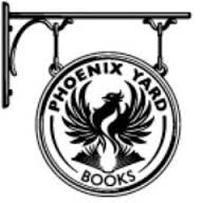 Phoenix Yard
Phoenix YardPhoenix Yard is a socially aware company that is"spectacularly proud to be an independent publisher because it means we can be innovative, responsive and have a lot of fun." They belong to the Independent Publishers Guild. Submissions: Submissions by email only. If you do not include a full cover letter, a synopsis and the required number of sample chapters, they will not consider your submission. Click here for details.
_____________________
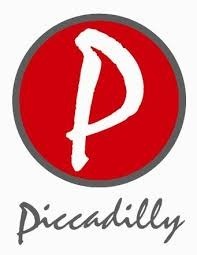 Piccadilly Press
Piccadilly PressPiccadilly Press publishes new titles in these three areas: 1) Picture Books for young children (2 to 5 years old). Texts should be 500 to 1,000 words long. 2) Children's and Teenage Fiction, mainly contemporary and humorous, dealing with the issues and problems which teenagers face in their own everyday lives. Children's books can range from aiming at 6+ to 8–12 and can vary in length –generally longer for older readers; books for teens are intended for 11–15-year-olds. and they are usually between 25,000 and 35,000 words in length. 3)Teenage Non-Fiction, mostly humorous, giving practical and sympathetic advice.
Submissions: By regular post only. Click here for details.
____________________
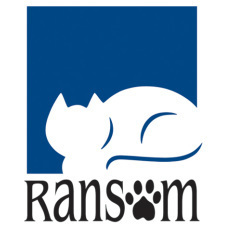 Ransom Publishing
Ransom PublishingRansom Publishing specializes in books for reluctant readers. They produce easily accessible, high-interest books for older teenagers and adults which have a very low reading level.
Submissions: Ransom does not include submission guidelines on their website. To receive submission guidelines, send an email to general enquiries on the contact page and request information about submissions. Click here for details.
_______________________
 Robinswood
Robinswood Robinswood books are aimed at increasing literacy, especially for those who 'don't do books' (e.g. people with learning disabilities). Submissions: Send a bio (see Becoming a Robinswood Author page) and a summary of your book: A synopsis – the story or content – some short extracts, a list of characters and their descriptions, and practical data like proposed number of chapters, word-count, the expected number of pages. Send everything in a single email. Click here for details.
________________________
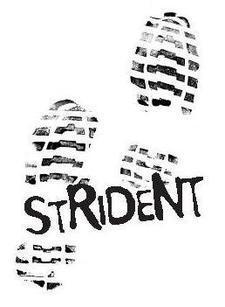 Strident
StridentStrident publishes a broad range of fiction. They license their books internationally. Most of their titles are available as ebooks. Strident accepts fiction aimed at ages 8-12, teenagers (13-16), and young adults. They do not accept submissions for:non-fiction, poetry, short stories (unless in a themed collection), or pre-school picture books. Submissions: Do not send manuscripts. Send an email query stating what you have written, appropriate age range, word count, blurb, books yours may be compared to, why your book stands out. Click here for details.
________________________
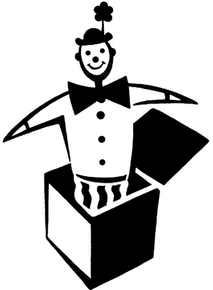 Templar
Templar Templar is part of the Bonnier Group. Founded in 1978, Templar has become one of the world's most respected publishers and packagers of illustrated children's fiction, novelty and picture books. They have an extensive backlist built over 30 years and sell their products in over 25 languages in more than 50 countries.
Submissions: Templar is currently accepting Picture Book and Novelty Book submissions. They are not currently accepting fiction submissions. Click here for details
_______________________
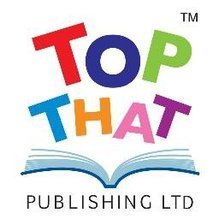 Top That
Top ThatTop That books caters to pre-school children. They focus on pop-up books, magnetic books, felt books, and other novelty books. They do not publish "regular" fiction. Top That Publishing Ltd is a Tide Mill Media PLC company. Submissions: Send submissions via email. They buy worldwide rights in all languages. No simultaneous submissions. Click here for details.
____________________
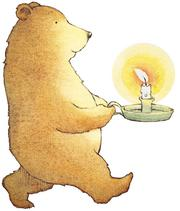 Walker
WalkerWalker is a large company, publishing over 300 books a year in the UK alone. Its sister companies are Walker Australia and Candlewick in the USA. They have a wide-ranging list, but they do not accept submissions in every category. Submissions: Walker accepts illustrated picture-book stories and/or artwork samples via post or email. They do not accept fiction manuscript submissions. Click here for details.
Published on April 10, 2014 10:31
April 7, 2014
How Stephen King Wrote Carrie: A Revealing Story
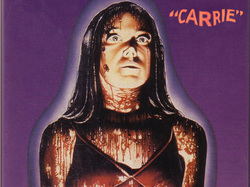 The best parts of Stephen King's book, On Writing: A Memoir of the Craft, are when he stops talking about writing in general, and focuses on how he writes. Anybody who writes, in fact, anybody who creates anything - including the theory of gravity - will recognize the process through which King came up with Carrie. Creative works come from the sort of haphazard confluences that King describes.
The best parts of Stephen King's book, On Writing: A Memoir of the Craft, are when he stops talking about writing in general, and focuses on how he writes. Anybody who writes, in fact, anybody who creates anything - including the theory of gravity - will recognize the process through which King came up with Carrie. Creative works come from the sort of haphazard confluences that King describes.It also helps to have somebody around who has unswerving faith in you.
___________________________
Stephen King: How I wrote Carrie
The Guardian, April 4, 2014
While he was going to college my brother Dave worked summers as a janitor at Brunswick High. For part of one summer I worked there, too. One day I was supposed to scrub the rust-stains off the walls in the girls' shower. I noticed that the showers, unlike those in the boys' locker room, had chrome U-rings with pink plastic curtains attached.
This memory came back to me one day while I was working in the laundry, and I started seeing the opening scene of a story: girls showering in a locker room where there were no U-rings, pink plastic curtains or privacy. And this one girl starts to have her period. Only she doesn't know what it is, and the other girls – grossed out, horrified, amused – start pelting her with sanitary napkins … The girl begins to scream. All that blood!
I'd read an article in LIFE magazine some years before, suggesting that at least some reported poltergeist activity might actually be telekinetic phenomena – telekinesis being the ability to move objects just by thinking about them. There was some evidence to suggest that young people might have such powers, the article said, especially girls in early adolescence, right around the time of their first...
POW! Two unrelated ideas, adolescent cruelty and telekinesis, came together, and I had an idea …
Before I had completed two pages, ghosts of my own began to intrude; the ghosts of two girls, both dead, who eventually combined to become Carrie White. I will call one of them Tina White and the other Sandra Irving.
Tina went to Durham Elementary School with me. There is a goat in every class, the kid who is always left without a chair in musical chairs, the one who winds up wearing the KICK ME HARD sign, the one who stands at the end of the pecking order. This was Tina. Not because she was stupid (she wasn't), and not because her family was peculiar (it was) but because she wore the same clothes to school every day.
Sandra Irving lived about a mile-and-a-half from the house where I grew up. Mrs Irving hired me one day to help her move some furniture … I was struck by the crucifix hanging in the living room, over the Irving couch. If such a gigantic icon had fallen when the two of them were watching TV, the person it fell on would almost certainly have been killed.
I did three single-spaced pages of a first draft, then crumpled them up in disgust and threw them away.
The next night, when I came home from school, my wife Tabby had the pages. She'd spied them while emptying my waste-basket, had shaken the cigarette ashes off the crumpled balls of paper smoothed them out and sat down to read them. She wanted me to go on. She wanted to know the rest of the story.
• This piece is taken from Stephen King's book On Writing: A Memoir of the Craft and his "Introduction to Carrie." It has been abridged by his British editor.
Published on April 07, 2014 07:45
April 4, 2014
The Wattpad Prize - Free Contest!
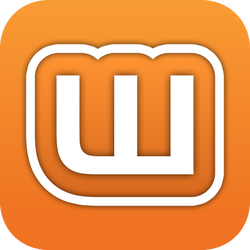 Wattpad boasts that it is the world's largest community of readers and writers. The company is Canadian, so you know it's not an idle boast. Wattpad has over 23 million readers and 40 million stories.
Wattpad boasts that it is the world's largest community of readers and writers. The company is Canadian, so you know it's not an idle boast. Wattpad has over 23 million readers and 40 million stories. Do I really need to explain why it's a good idea to enter a Wattpad contest?
The Wattpad Prize closes on April 30. Go here for more details.
_____________________________________
The Wattpad Prize
Seek the acclaim that comes with winning Wattpad’s new, juried prize. The Wattpad Prize is the first contest to celebrate the achievements of both readers and writers in the community. We’ll be awarding our top readers with a spot on the Prize Jury, made up of Wattpad’s most dedicated, experienced, and engaged members. These distinguished readers will review the story submissions for originality, creativity, structure, and grammar, and decide which of Wattpad’s most talented writers will win the coveted Wattpad Prize.
Prize Jury
The jury will be carefully selected based on their level of dedication, expertise, and positive influence in the community. Jury members will review Wattpad Prize submissions and select the winning stories based on the following themes:
Best love storyBest escapeBest true storyBest inspirational storyBest comedyBest imaginative storyBest epicBest tragedyBest memoirBest suspense storyEligibility/Entry Requirements
The Wattpad Prize is open to all Wattpadders over the age of 13. Any English-language story of original fiction and non-fiction can be entered. Works must also be rated PG-13 or below and marked as ‘Completed’ by April 30, 2014.
Original Fiction: Original Fiction includes stories, characters, and settings that are entirely of the writer's own creation. These stories can focus on the everyday experiences and conflicts of a protagonist, with detailed characterisation and background.
Non-Fiction: Non-Fiction includes stories that are factually accurate and focus on real events, people, and experiences. These stories can include, but are not limited to, essays, journals, biographies, travelogues, self-help and advice.
How to Enter
To enter, tag your completed work of original fiction or non-fiction with wattpadprize14 by April 30, 2014. Each participant may enter a maximum of three works. For more information, please read the official contest rules.
Prizes
The winning writers will receive a Wattpad Prize Writer Award, which will include a mailed hardcover copy of their winning story, official congratulatory letter, and be featured on the Wattpad website and mobile apps over the month of June.
Published on April 04, 2014 16:05
April 3, 2014
Best Method for Handling Rejections (and getting published)
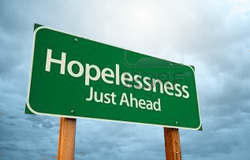 Nobody likes to be rejected. Even the most seasoned, thick-skinned, successful writers hate getting rejections.
Nobody likes to be rejected. Even the most seasoned, thick-skinned, successful writers hate getting rejections.Unfortunately, for aspiring authors rejection isn't just a passing disappointment - it's a way of life.
As a writer, you can count on getting hundreds of rejections. And - I hate to say this - your hundredth rejection will sting just as much as the first.
At some point, you will be tempted to throw in the towel.
Don't do it. Try my foolproof method instead.
The method
Before I explain my tried-and-true method for handling rejections, I have to preface it with the admonition that it will take a little organizational work on your part. Ideally, you should do this before you start submitting your work. After all, you want to avoid as much pain as possible. Of course, if you have already started submitting your work and are in the throes of an existential crisis, it still isn't too late.
1) Make a 'top 50 list.' Find 50 places to submit your work and rank them in order of desirability. (For example, if you are submitting a story, the top slot could be the New Yorker.)
If you are submitting a short story, go here, and find 50 literary magazines.
If you are submitting query letters to agents, go to Agentquery and make a list of 50 agents for your genre. (Be sure to check Agents Seeking Clients here.)
Resources for Science Fiction/Fantasy writers are here.
Resources for Children's and YA writers are here.
Resources for Romance writers are here.
Resources for Mystery/Thrillers are here.
2) If your top slot says "no simultaneous submissions" then, immediately after getting your rejection, submit to the #2 spot on your list.
3) If your top slots - or your remaining slots - don't say "no simultaneous submissions" submit to all of them at once. One of them will take you, and your waiting time will be considerably reduced.
4) If you are submitting to agents, make sure you revise and hone your query letter as you submit, but keep working your way down your list. Don't stop.
5) When you get close to number 50 (and I have done this more than once), make a new 'top 50 list.'
Do this doggedly - without pausing to contemplate the futility of writing or the pointlessness of existence - and you will do just fine. And keep writing! Having several of your works making the rounds on your 'top 50' will increase your chances of success.
You may find, as I did, that by using this technique you will not only avoid the rejection blues, you will get published.
Published on April 03, 2014 09:52
March 31, 2014
15th Free “Dear Lucky Agent” Contest: Young Adult Fiction
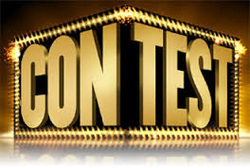 Chuck Sambuchino has announced yet another free contest. This one is for YA fiction.
Chuck Sambuchino has announced yet another free contest. This one is for YA fiction.The good thing about a contest that only allows you to submit the first 150-200 words of your book is that it forces you to really look at that first page.
How many extraneous words do you have in those first few paragraphs? Have you captured the attention of your readers?
Any manuscript, or portion of a manuscript, you send to an agent or publisher will be judged on those critical first paragraphs.
Polish them until they shine.
____________________________
15th Free “Dear Lucky Agent” Contest: Young Adult Fiction
Chuck Sambuchino, GLA Blog, 3/23/2014
Welcome to the 15th (free!) “Dear Lucky Agent” Contest on the GLA blog. This is a recurring online contest with agent judges and super-cool prizes. Here’s the deal: With every contest, the details are essentially the same, but the niche itself changes—meaning each contest is focused around a specific category or two. So if you’re writing young adult fiction, this 15th contest is for you! (The contest is live through EOD, Wednesday, April 9, 2014.)
WHY YOU SHOULD GET EXCITED
After a previous “Dear Lucky Agent” contest, the agent judge, Tamar Rydzinski (The Laura Dail Literary Agency), signed one of the three contest winners. After Tamar signed the writer, she went on to sell two of that writer’s books! How cool! That’s why these contests are not to missed if you have an eligible submission.
HOW TO SUBMIT
E-mail entries to dearluckyagent15@gmail.com. Please paste everything. No attachments.
WHAT TO SUBMIT
The first 150-200 words of your unpublished, completed book-length work of young adult fiction. You must include a contact e-mail address with your entry and use your real name. Also, submit the title of the work and a logline (one-sentence description of the work) with each entry.
Please note: To be eligible to submit, you must mention this contest twice through any any social-media. Please provide a social-media link or Twitter handle or screenshot or blog post URL, etc., with your official e-mailed entry so the judge and I can verify eligibility. Some previous entrants could not be considered because they skipped this step! Simply spread the word twice through any means and give us a way to verify you did; a tinyURL for this link/contest for you to easily use is: http://tinyurl.com/pcmopmq.
An easy way to notify me of your sharing is to include my Twitter handle @chucksambuchino at the end of your mention(s) if using Twitter. And if you are going to solely use Twitter as your 2 times, please wait 1 day between mentions to spread out the notices, rather than simply tweeting twice back to back. Thanks. (Please note that simply tweeting me does not count. You have to have the contest URL with your mention; that’s the point.)
WHAT IS ELIGIBLE?
Young adult fiction. The agent judge did not choose to exclude any subgenre, so everything is fair game.
CONTEST DETAILS
This contest will be live through the end of April 9, 2014, PST. Winners notified by e-mail within approximately three weeks of end of contest. Winners announced on the blog thereafter.
To enter, submit the first 150-200 words of your book. Shorter or longer entries will not be considered. Keep it within word count range please.
You can submit as many times as you wish. You can submit even if you submitted to other contests in the past, but please note that past winners cannot win again. All that said, you are urged to only submit your best work.
The contest is open to everyone of all ages, save those employees, officers and directors of GLA’s publisher, F+W Media, Inc.
By e-mailing your entry, you are submitting an entry for consideration in this contest and thereby agreeing to the terms written here as well as any terms possibly added by me in the “Comments” section of this blog post. (If you have questions or concerns, write me personally at chuck.sambuchino (at) fwmedia.com. The Gmail account above is for submissions, not questions.)
PRIZES!!!
Top 3 winners all get: 1) A critique of the first 10 double-spaced pages of your work, by your agent judge. 2) A free one-year subscription to WritersMarket.com ($50 value)!
MEET YOUR (AWESOME) AGENT JUDGE!
A literary agent for close to fifteen years, Andrea Somberg represents a wide range of fiction and nonfiction, including projects aimed at a young adult and middle grade audience. Previously an agent at the Donald Maass Agency and Vigliano Associates, she joined Harvey Klinger Inc. in the spring of 2005. Andrea has also been a MediaBistro instructor, teaching courses on writing nonfiction and memoir book proposals.
Published on March 31, 2014 07:17
March 29, 2014
Do you know what an author brand is? And do you actually want one?
 At last, I understand what an author brand is! It's Heinz! It's Dinty Moore! It's Walmart, Home Depot, McDonald's!
At last, I understand what an author brand is! It's Heinz! It's Dinty Moore! It's Walmart, Home Depot, McDonald's! What do all these things have in common?
They are completely uniform, completely predictable, and completely marketable.
To create an author brand, just do what any of these other brands have done. Write a series (Dijon mustard, honey mustard, German mustard). Make sure each book provides the same reading experience (mustard). And churn your "products" out on a schedule (New this week! English mustard!). The combination of predictability and availability (more, more!) is what is known as "trust." And once readers develop "trust," you've got yourself a heap of consumer loyalty.
Frankly, I find the application of assembly-line consumerism to literature to be somewhat appalling. But that did not prevent me from reading the article below. (Or from reading every single one of Alexander McCall Smith's No. 1 Ladies' Detective Agency series.) At least, I now know to avoid agents who talk about developing "author brands" for their clients.
Ouch.
___________________________________________
The Strongest Brand In Publishing Is ...
By David Vinjamuri, Forbes, March 4, 2014
When comparing authors, publishers tend to focus on book sales. But sales figures tell only part of the story. Expensive advertising and a strong push for distribution and display at bookstores might yield strong initial sales but create lots of returns and low profitability. An early and fortuitous movie deal might overexpose a book that doesn’t meet the promise of the movie.
A thousand other externalities make sales data inadequate to measure the strength of an author’s franchise. To understand which authors are worth investing in, publishers need a better measure of an author’s value.
Brand, Not Platform
The metric often used to evaluate new or developing authors is platform – roughly defined as the social reach of the author though Facebook fans, Twitter followers, blog views and speaking engagements. But according to Peter Hildick-Smith of the Codex Group, which polls thousands of readers to determine their preferences and purchase behavior, platform is a misleading metric.
"We’ve seen celebrities with extremely high name recognition and very large platforms fail miserably in book sales. Being famous or having millions of Twitter followers alone is not enough to build a strong franchise as an author."
Hildick-Smith points out that only about half of adults read books and just a fifth are regular book buyers. So a celebrity with a large and dedicated following will not automatically become a bestselling author.
Read on to find out which author has the strongest "brand" more...
Published on March 29, 2014 07:47
March 27, 2014
2 Agents Looking for Clients
 These two agents are looking for new clients. Read their bios and websites to see if your work is a good match for them. Check Preditors and Editors to find out if any complaints have been lodged against them. (It's not likely in these cases, but you can never be too careful.) Absolute Write is another good source of information about agents.
These two agents are looking for new clients. Read their bios and websites to see if your work is a good match for them. Check Preditors and Editors to find out if any complaints have been lodged against them. (It's not likely in these cases, but you can never be too careful.) Absolute Write is another good source of information about agents._______________________
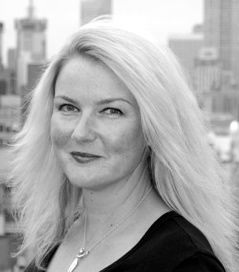 Lisa Gallagher
Lisa GallagherAbout Lisa: "As Senior Vice President & Publisher of William Morrow, I published many New York Times bestselling authors, both fiction and non-fiction. Having worked for Bloomsbury UK prior to moving to New York in 1998 to launch Bloomsbury USA, I have publishing experience and insight from both sides of the Atlantic. Now as an agent, being a champion of authors and their work continues to be my passion."
What she is looking for: Lisa represents both fiction and non-fiction writers. She is actively seeking new clients who are great storytellers, delivering both narrative urgency and dramatic tension, combined with multi-faceted characters and a transporting sense of place.
How to submit: Please submit your manuscript or proposal on her online form as a PDF: double spaced, 18pt, Times New Roman. No hard copy submissions accepted.
"I will do my best to read and respond to you within eight weeks of receiving your submission. Unfortunately due to the volume of submissions received, I am unable to respond to every one personally, so if you haven’t heard from me at all by then, it means that I am unable to offer you representation. If your query is a multiple submission and you get an offer of representation from another agent before hearing back from me, I would be grateful if you could let me know by sending an email with the subject line “Offer received”. Thank you very much."
_______________________
 Caitlen Rubino-Bradway
Caitlen Rubino-BradwayAbout Caitlen: “I joined the LKG Agency in 2008, thereby disproving the theory that no English major ever does anything with their degree. I have enjoyed my apprenticeship under Lauren Galit very much, and I am now actively looking to build my own list."
What she is seeking: “I personally am looking for middle grade and young adult fiction. In teen novels, Sci-fi/fantasy is my sweet spot, but I’m open to anything as long as it doesn’t have zombies.
“Also, the LKG Agency [which has one other agent] is always on the lookout for nonfiction, both practical and narrative. We specialize in women’s focused how-to, such as parenting, lifestyle, health & nutrition, and beauty, but we are open to a lot of nonfiction genres. (For a full list you can check out the submission guidelines on our website.)”
How to submit: “We are looking for email queries only. Nonfiction queries should be sent to lkgquery [at] lkgagency.com; we ask that you please mention any publicity you have at your disposal in your query letter. For middle grade and YA queries, email crubinobradway [at] lkgagency.com.”
Published on March 27, 2014 14:55



